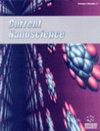人工智能与纳米技术的融合:可持续精准农业的新领域
IF 1.5
4区 材料科学
Q4 BIOTECHNOLOGY & APPLIED MICROBIOLOGY
引用次数: 0
摘要
:应对气候变化、人口激增、可再生燃料生产对土地的需求以及不利的土壤条件所带来的挑战,对于确保全球粮食安全至关重要。要实现可持续的解决方案,就必须整合材料技术和信息学等多学科知识。精准农业与纳米技术和人工智能(AI)的融合为可持续粮食生产提供了广阔的前景。通过利用纳米技术和人工智能等先进技术对作物生长做出实时响应,农民可以优化资源分配并做出明智决策。精准农业、纳米技术和人工智能的融合为可持续粮食生产带来了新的机遇。这种融合使农民能够利用先进技术动态应对作物的生长变化。通过将纳米技术和信息学方法与现有的养分循环和作物生产力模型相结合,就有可能提高关键方面的能力,如精准定位、高效吸收、有效分配、优化养分同化以及对土壤微生物群落的长期影响。这种整合为改善农业和应对粮食生产的可持续性挑战提供了巨大潜力。最终,这种协同作用可以开发出兼顾安全性和功能性的纳米级农用化学品,确保农业系统的最佳性能。本文章由计算机程序翻译,如有差异,请以英文原文为准。
Artificial Intelligence Integration with Nanotechnology: A New Frontier for Sustainable and Precision Agriculture
: Addressing the challenges posed by climate change, surging population, rival demands on land for renewable fuel manufacturing, and adverse soil conditions is crucial for ensuring global food security. Achieving sustainable solutions necessitates the integration of multidisciplinary knowledge, such as materials technology and informatics. The convergence of precision agriculture with nanotechnology and artificial intelligence (AI) offers promising prospects for sustainable food production. Through real-time responsiveness to crop growth using advanced technologies, such as nanotechnology and AI, farmers can optimize resource allocation and make informed decisions. Newer opportunities for sustainable food production arise through the integration of precision agriculture, nanotechnology, and artificial intelligence. This convergence enables farmers to dynamically respond to crop growth variations using advanced techniques. By combining nanotechnology and informatics methods with existing models for nutrient cycling and crop productivity, it becomes possible to enhance critical aspects, such as precision targeting, efficient absorption, effective distribution, optimized nutrient assimilation, and long-term effects on soil microbial communities. This integration offers significant potential for improving agriculture and addressing sustainability challenges in food production. Ultimately, this synergy allows for the development of nanoscale agrochemicals that offer a balance between safety and functionality, ensuring optimal performance in agricultural systems.
求助全文
通过发布文献求助,成功后即可免费获取论文全文。
去求助
来源期刊

Current Nanoscience
工程技术-材料科学:综合
CiteScore
3.50
自引率
6.70%
发文量
83
审稿时长
4.4 months
期刊介绍:
Current Nanoscience publishes (a) Authoritative/Mini Reviews, and (b) Original Research and Highlights written by experts covering the most recent advances in nanoscience and nanotechnology. All aspects of the field are represented including nano-structures, nano-bubbles, nano-droplets and nanofluids. Applications of nanoscience in physics, material science, chemistry, synthesis, environmental science, electronics, biomedical nanotechnology, biomedical engineering, biotechnology, medicine and pharmaceuticals are also covered. The journal is essential to all researches involved in nanoscience and its applied and fundamental areas of science, chemistry, physics, material science, engineering and medicine.
Current Nanoscience also welcomes submissions on the following topics of Nanoscience and Nanotechnology:
Nanoelectronics and photonics
Advanced Nanomaterials
Nanofabrication and measurement
Nanobiotechnology and nanomedicine
Nanotechnology for energy
Sensors and actuator
Computational nanoscience and technology.
 求助内容:
求助内容: 应助结果提醒方式:
应助结果提醒方式:


